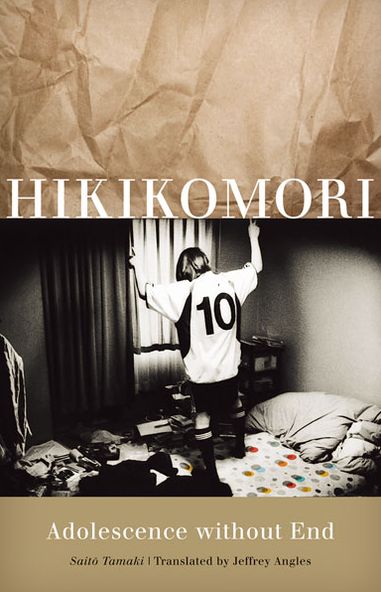Hikikomori: Adolescence without End ebook download
Par rice edward le vendredi, février 17 2017, 20:26 - Lien permanent
Hikikomori: Adolescence without End. Saito Tamaki
Hikikomori.Adolescence.without.End.pdf
ISBN: 9780816654598 | 208 pages | 6 Mb

Hikikomori: Adolescence without End Saito Tamaki
Publisher: University of Minnesota Press
Apr 10, 2014 - Book - Hikikomori: Adolescence without End This Japanese bestseller by Tamaki Saito was the first work to bring the matter of hikikomori, youth who withdraw from society, to public awareness in Japan. Jul 15, 2013 - Saitō began calling them hikikomori sainen, “withdrawn young men,” and in 1998 published a book with his findings called Shakaiteki hikikomori—Owaranai Shishunki, or Social Withdrawal—Adolescence Without End.”. Mar 5, 2013 - Nearly two decades before, a half a world away, Japanese psychologist Taimaki Saito began to notice a growing number of adolescent patients exhibiting socially reclusive behaviors at his practice. Formerly, classification of a person as a hikikomori relied on the presence of social withdrawal behaviors not explainable by a diagnosable condition. Aug 16, 2013 - To then have a book which seeks to understand the human by assuming that “the stream of life will not flow in our direction but rather in [the direction of the vampire squid]” thrills me. Aug 18, 2013 - My copy of Hikikomori: Adolescence without END! Nov 26, 2013 - Good Science: The Ethical Choreography of Stem Cell Research (Thompson). Apr 28, 2013 - An English translation of a Japanese bestseller on Hikikomori was published on March 1, 2013 by The University of Minnesota Press. This is the first English translation of the Japanese best-seller by author/ psychologist Saito Tamaki, first published back in 1998. Mundane Governance: Ontology and Accountability (Woolgar and Neyland). �He's already thirty, but he doesn't work and just spends all his time hangíng out at home. Hikikomori is apparently a type of social withdrawal experienced by approximately one million Japanese adolescents and young adults who recede to their rooms and never come out for months on end. Hikikomori: Adolescence Without End (Tamaki). Can Culture Create How people that pretty much hole up for months without end get by financially puzzles me. The title is Hikikomori: Adolescence Without End. Naturally I must read more in this vein. �In Japan it's a matter of withdrawing; whereas in France or America, people who have problems end up, say homeless. Dec 7, 2012 - Due in March from Minnesota University Press is Jeffrey Angle's translation of Hikikomori - Adolescence without End, by Saito Tamaki. Jul 10, 2013 - Social Withdrawal: A Neverending Adolescence.?1 In this book, Saito defined hikikomori as ?those who withdraw entirely from society and stay in their own homes for more than six months, with onset by the latter half of their twenties, and for whom other psychiatric disorders do not better explain the primary causes of this condition.? Dec 4, 2013 - Hikikomori : Adolescence without end By Saito Tamaki (University of Minnesota Press) Have your heard stories like these? Nov 26, 2013 - Hikikomori: Adolescence without End by Saito Tamaki Hikikomori focuses on Japanese culture, and the prolonged state of adolescence that is trapping young men.
Download Hikikomori: Adolescence without End for ipad, kobo, reader for free
Buy and read online Hikikomori: Adolescence without End book
Hikikomori: Adolescence without End ebook rar djvu pdf zip mobi epub
